
views
Exploring the Causes
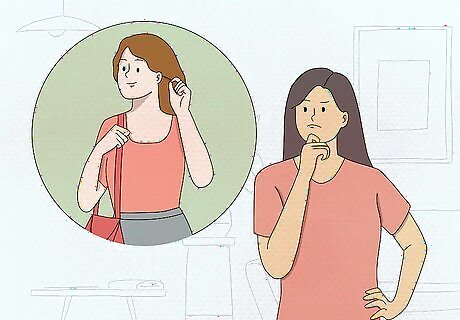
Ask yourself what is causing you to feel jealous. It’s important to identify the root of your jealousy. While you may initially believe that you are jealous of something superficial, once you begin to look at your feelings of jealousy more deeply, you may realize that there is likely one specific root of your jealousy, which you can then change, or at least talk about. Often, what you’re jealous of points to something that makes you unhappy about yourself. For example, if you’re jealous of someone’s hair, it might mean you’re unhappy with or ashamed about the way your own hair looks. Once you have figured out what specifically you are jealous of, you can begin to work on yourself to overcome that jealousy.
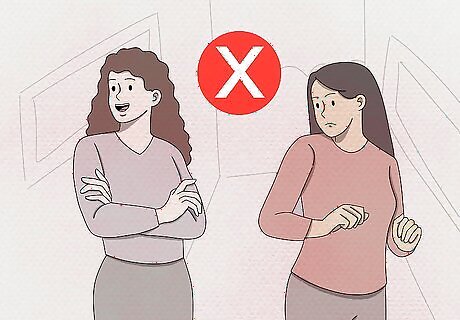
Separate your emotions from the situation. We sometimes confuse how we feel about something with the way it actually is. Examine your feelings of jealousy and separate them from the reality of the situation. Often you are jealous of something fleeting and trivial—ask yourself if what you're jealous of will matter a year from now. Jealousy is a natural feeling, but it’s important not to let it take control of your life. For example, if you’re jealous of someone complimenting your friend, remind yourself that just because your friend got a compliment, it doesn’t mean they’re better than you, or that the two of you are competing. It just means that someone said something nice about them!
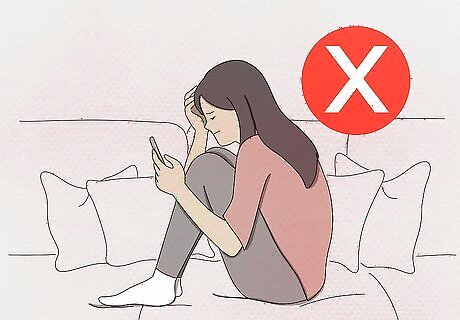
Stop comparing yourself to others. When you live your life constantly comparing yourself to others, you create insecurities and recognize disparities that breed jealousy. Instead, try to compare yourself only to yourself. After all, you’re your own person, with your own positive and negative qualities. Life isn’t a competition! Try this: Take a break from social media until your self-esteem is better. Social media gives you a false impression of other people’s lives, but they struggle just as much as you do; they’re just not usually posting those struggles to social media. Make a list of your own successes, goals, and how far you’ve come. This will help focus your energy into a productive mindset that will let you think about yourself rather than other people.

Explore your past trauma. Oftentimes, jealousy is a self-defense mechanism your mind learned to protect you from something that might have happened in the past. Ask yourself if your jealousy is a response to a traumatic event in the past, and explore ways to heal from that trauma, like therapy. For example, a past loved one may have hurt you somehow, and now you expect the same behavior from your current loved ones. Recognize that each person is different, and it’s unfair to think less of yourself or someone else just because of what another person did in the past. Keep a journal of your thoughts as you consider why and how you might feel things. This is a good way to externalize your feelings and get a better idea of exactly what you feel. Talk to someone you trust, like a guardian or a friend who isn’t involved. Often, having an outside perspective helps to sort out your feelings.
Working on Yourself
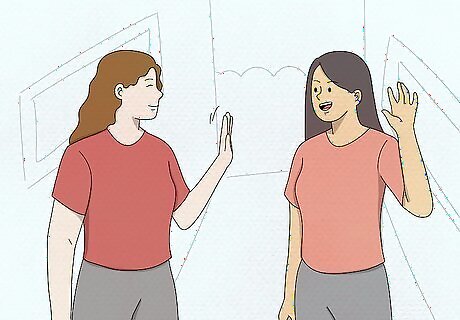
Consider and take advantage of your insecurities. Take some time to identify your insecurities, and then focus on building them into strengths instead, which will lessen feelings of jealousy. Working on your own characteristics takes your focus off of other people and back onto yourself. For example, perhaps you’re lonely and want to make more friends, but you’re not very social. Practice being outgoing and friendly toward strangers and eventually you’ll have become a more confident, assured person. Keep a positive mindset while identifying areas in which you are insecure. Remind yourself of things you do feel confident in or like about yourself.

Build your self-esteem. Self-esteem is how you feel about yourself as a person. Feelings of inadequacy increase the likelihood that you will experience jealousy. On the other hand, when you have a high self-esteem, you stop feeling threatened by other people and their actions, and instead you’ll learn to appreciate and congratulate them. There are many ways to work on your self-esteem: Recognize your strengths. Do you excel at sports? Are you a good listener or a trusted confidant? Write down a list of your best qualities and reread it any time you doubt yourself. Strike up a conversation with someone new to build your experience and confidence. Talking with new people can remind you that we’re all different and unique, and we don’t need to be envious of each other. Work on your weak spots. Perhaps you are terrible at bowling and your best friend is a good bowler. You can improve your bowling through practice, and feel good about your growth, instead of feeling bad about how good they are already.

Recognize and accept your emotions. Your emotions aren’t bad or good, they’re simply your natural reactions to the world around you. You shouldn’t beat yourself up about feeling jealous, but you should stop and examine that feeling before it becomes destructive. Try some mindfulness exercises, which have been shown to reduce feelings of envy and jealousy: Ask yourself what you are feeling and if you want to feel this way. Sit on the floor in a quiet room and pay close attention to each part of your body separately, starting with your feet and working your way up to your head. This can help calm you down and reorient you on what’s important. Practice daily affirmations. Remind yourself that you are capable and deserving of giving and receiving love and respect. Post them somewhere visible, such as on your mirror or computer monitor, and say them out loud each day.
Communication
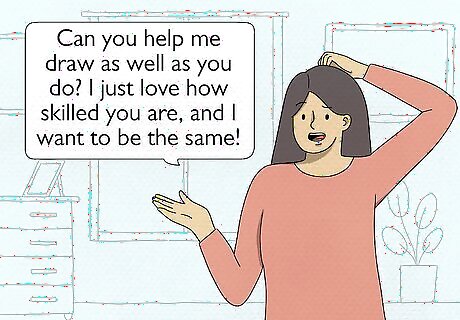
Talk about your jealousy with your friend. Once you’ve recognized the root of your jealousy and you’ve come up with a solution, talk to your best friend. Talking it out is one of the best ways to resolve relationship issues, and an understanding friend will let you put it all on the table. For example, you might tell your best friend that you are jealous of her hair—ask her if she would be okay with you getting the same haircut, or even to recommend a salon. Turn this into a bonding moment that could strengthen your friendship. Acknowledge that your feelings are your own and that you are in control of them. “Can I talk to you? I think I’m feeling a little jealous and could use a little help.” “Can you help me draw as well as you do? I just love how skilled you are, and I want to be the same!”
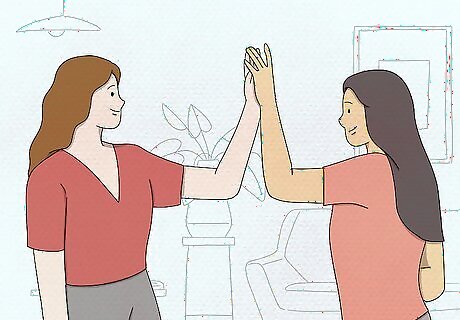
Appreciate your friendship rather than your conflicts. If you are still unable to abate your jealousy, then it is time to remind yourself of the importance of your friendship. Often, that will be enough to ease your feelings of jealousy. After all, the two of you chose to spend time with each other and form a relationship—remind yourself of why you work well together. What makes you best friends in the first place? Think about your favorite memories together. Understand that your jealousy could harm your friendship if you don’t address it. Make sure that you are not feeling jealous because your friend makes you feel inferior to them. If this is the case, then this may not be a good friendship.

Avoid blaming your friend. Remember that your feelings of jealousy aren’t your friend’s fault, but feelings that started within yourself. Make it clear to them that you take responsibility for your feelings, but you’re struggling with them all the same and want to talk about them in a way that doesn’t assign blame. Instead of saying, “Your hair makes me so jealous!” try, “I feel jealous of your hair. You’ve got a great cut.” In this way, you’re using “I” statements, rather than “you” statements to talk about your jealousy. Also own where your jealousy could be coming from, such as a history of being bullied, an abusive relationship, etc.
Dealing with a Jealous Friend
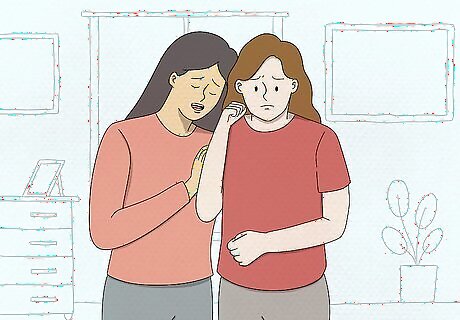
Consider your friend’s perspective. You’d want your friends to help you out when you’re struggling with your feelings, right? Give them that same courtesy and practice empathy. Remember your friend has feelings the same way you do, and that you can’t blame them for the way they feel, only the way they act. Try to sympathize with them: has their life been difficult lately? Do you have something they’ve wanted for a long time? Even if it’s not your fault they feel jealous, you can still acknowledge the situation. Also consider your own behavior. Have you been bragging or gloating recently? You don’t need to feel ashamed of your accomplishments, but you shouldn’t show off too much.

Help them through their feelings. If your friend approaches you to talk, be open and supportive. After all, it takes a lot of courage to ask someone for a frank conversation or even just for help. Listen closely and ask them how you can help them with their feelings. Avoid initiating a conversation about their jealousy, since this might irritate or offend them. Instead, just ask them if something’s been bothering them recently, and let them know you’re always available to talk it out.
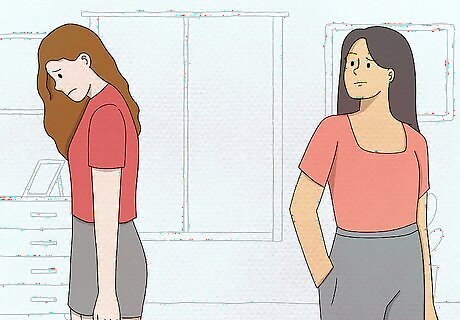
Establish healthy boundaries. Sometimes you just can’t help someone through their feelings, especially if they don’t want help. If your friend’s jealousy is hurting you or they keep saying hurtful things about your achievements, tell them that you don’t want to talk about those things anymore, or even that you think the two of you might need some time away from each other. When setting boundaries, tell your friend that you appreciate them, even if you think your friendship needs to change a little. Let them know that it’s not their fault, you just need a little space to think. Reconsider your friendship if they continue to hurt you. It may be time to move on and find new friends.




















Comments
0 comment